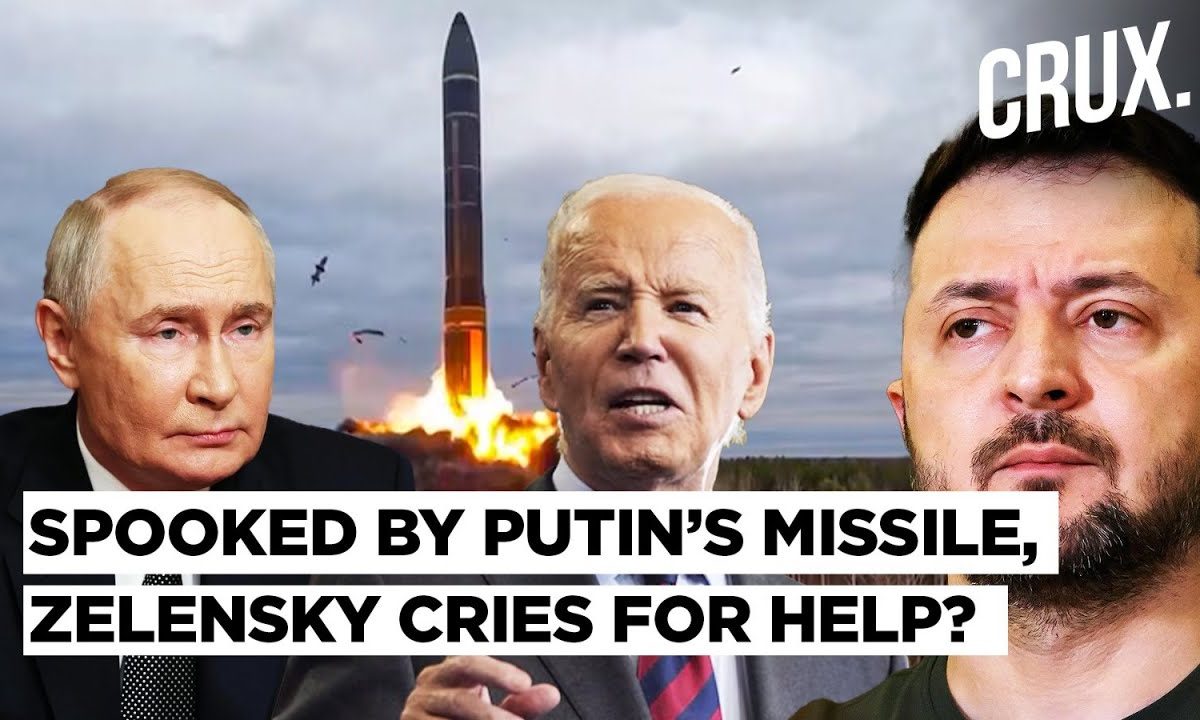Iran, Israel's sworn enemy, rained a barrage of missiles on Israel on Tuesday. The Iran-Israel conflict is four-decades old. However, what might surprise many is that they were once allies who even cooperated militarily and commercially. This is how two allies became sworn enemies.

The animosity between Israel and Iran, led by Benjamin Netanyahu and Ali Khamenei, is complete reversal from close ties during the time of the Pahlavi regime in Tehran. (Image: File)
A massive barrage of Iranian missiles lit up the night sky over Israel on Tuesday, pushing the sworn enemies to the brink of an all-out war. While it's no secret that Iran is Israel's sworn enemy, what might surprise many is that they once shared a very close relationship. They even joined forces against a common enemy -- a far cry from the fiery stand-off we see today.
To put things in perspective, Iran was the second Muslim country to recognise Israel after it was formed in 1948.
To grasp how relations between the two nations reached a nadir, and what once brought them to work closely, it's essential to explore the history of Iran-Israel ties to trace the gradual shift from early friendliness to today's open hostility.
FRIENDS-BUT-NOT-QUITE (1947-1953)
Following World War II and a wave of decolonialisation, the world powers had the Palestine question to answer.
When the United Nations proposed the Partition Plan for the British Mandate of Palestine in 1947, Iran was among the 13 countries that voted against it. The Iranian stance was reiterated in 1949 again, when Iran voted against Israel's entry to the United Nations as a member.
Despite the initial opposition, practical geopolitical and strategic interests soon led to a covert relationship between Iran and Israel. However, in public, Iran declined to recognise Israel.
In 1950, Iran became the second Muslim-majority country to recognise Israel as a sovereign nation after Turkey did so.
IRAN, ISRAEL WERE PARTNERS DURING SHAH REGIME (1953-1979)
The return of the Shah's rule in Iran, following an alleged CIA-engineered coup in 1953, marked a significant turning point in Iran-Israel relations. With the return of Mohammad Reza Shah Pahlavi to power, Iran and Israel began to forge a close and multifaceted alliance.
Iran officially recognised Israel in 1950. Back then, Iran housed the largest Jewish population in West Asia.
The Pahlavi regime viewed Israel as a natural ally, particularly in the face of common adversaries such as Gamal Abdel Nasser's Egypt and the Ba'athist Iraqi Republic.
The alliance, driven by mutual benefits, saw economic, military, and intelligence cooperation between Iran and Israel. They also developed a close relationship based on shared interests in keeping the Communist USSR out of West Asia, as both were, backed by capitalist America.
In Israeli Prime Minister David Ben Gurion's concept of alliance of the periphery, Iran found a friendly place. The newly formed Jewish state sourced 40% of its oil from Iran, trading in return weapons, technology, and agricultural goods, according to a piece in Saudi Arabian daily Arab News.
Oil from Iran was critical for Israel's industrial and military needs, while hostile Arab nations had put an oil embargo on the Jewish state. The Eilat-Ashkelon Pipeline Company, established in 1968, was a key joint project that allowed Iranian oil to be transported to Israel, bypassing the Suez Canal under the Egyptians.
In return, Israel provided Iran with modern military equipment and armaments to fight its war against Iraq in the 1980s. Iranians even imported advanced missile systems, M-40 antitank guns, Uzi submachine guns and aircraft engines from Israel, according to a piece in The Times of Israel. The Shah of Iran even admired Israel because of its military success against its neighbours.
Then came Project Flower, which was an Israeli-Iranian venture to jointly develop advanced missile systems.
The secret police of Pahlavi Iran, SAVAK, was created in 1957 with the assistance of the CIA and Mossad.
Culturally, the Pahlavi dynasty promoted a narrative that stressed Iran's pre-Islamic past and its distinctiveness from Arab culture. This posturing helped the Iranian regime to justify its affinity with Israel.
POST-REVOLUTION DOWSLIDE (1979-1990)
The Iranian Revolution in 1979 marked a seismic shift in Iran-Israel relations. The overthrow of the Pahlavi dynasty and the establishment of the Islamic Republic under Ayatollah Khomeini led to a complete reversal of Iran's foreign policy and worldview. However, in the initial years, Iran and Israel continued with their ties.
Both Israel and Iran saw it in their interests to counter the Iraqi government of Saddam Hussein. Iraq was part of three of the four Arab wars against Israel.
During the 1980-88 Iran-Iraq war, Israel reportedly sold arms worth $500 million annually, according to the British newspaper The Observer.
To facilitate these deals, The Time magazine noted, Israel even established Swiss bank accounts. The Israeli brass in Jerusalem was hopeful that the arms supply would keep the Iranian military happy and topple the fledgling regime of the Ayatollah.
The covert ties continued for some time even after the Iran-Iraq war, but the ties were destined to get worse.
Iran, now a theocratic state, saw Israel as an occupier of Palestinian land. Iran even labelled Israel as "Little Satan", while the United States was called the "Great Satan".
Shia Iran wanted to be the power centre of the Middle East, and started challenging Saudi Arabia, the Mecca of Sunni Islam. It also saw both Israel and the US as interfering in regional affairs.
The new Iranian government severed all diplomatic ties with Israel, and the country began to support Palestinian and other anti-Israel movements actively. This period saw a significant deterioration in relations, with both sides engaging in rhetorical battles and proxy conflicts.
It was in this period that Iran started supporting Shia Lebanese elements, which later took the shape of Hezbollah, according to a BBC report.
ALL-OUT ANIMOSITY AFTER GULF WAR (1991 ONWARDS)
The end of the Gulf War in 1991 marked the beginning of an era of open hostility between Iran and Israel. The collapse of the Soviet Union and the rise of the United States as the sole superpower further polarised the region, with Iran and Israel finding themselves on opposite sides of nearly every major geopolitical discourse.
Iran's nuclear programme, which began in the 1980s, became a major point of contention starting in the 1990s. Israel, along with the United States and other Western countries, insisted that Iran junk its nuclear ambitions as they posed a threat to regional and global security. For the US and its West Asian ally Israel, Iran was now ruled by a radical autocratic figure-head, the Ayatollah.
After Ruollah Khomeini, it was his successor, Ayatollah Ali Khamenei, who inherited the bitter battle.
The open animosity led to numerous confrontations, including covert operations and public threats of military action against one another.
In recent years, the fire has flared up, threatening to engulf a large chunk of the Middle Eastern region.
Israel and Iran started engaging in verbal confrontations and proxy battles. Iran reared at least half a dozen proxies in Israel's neighbourhood, while the Jewish state went after them, hunting them down, employing cutting-edge technology and remarkable intelligence.
The Syrian civil war became a battleground for their proxy wars, with Iran supporting the Syrian government and Israel conducting airstrikes against Iranian targets in Syria. It was Iran-backed Hezbollah's intervention in 2011 that saved the regime of Basha al-Assad.
Tuesday's Iranian missile attack on Israel, in response to Israeli strikes on high-ranking proxy leaders, including Hezbollah chief Hassan Nasrallah, Iran's Islamic Revolutionary Guards Corps commander Abbas Nilforoushan and Hamas leader Ismail Haniyeh, is the latest manifestation of this ongoing hostility.
As tensions continue to escalate, one thing is certain, that the conflict between Iran and Israel is far from resolved. It is, as many are speculating, a matter of time when Israel hits back, as vowed by its government. At this time of conflict, it is interesting to look back at a time when the sworn enemies were allies.
Published By:
Sushim Mukul
Published On:
Oct 2, 2024

 1 month ago
1 month ago

















